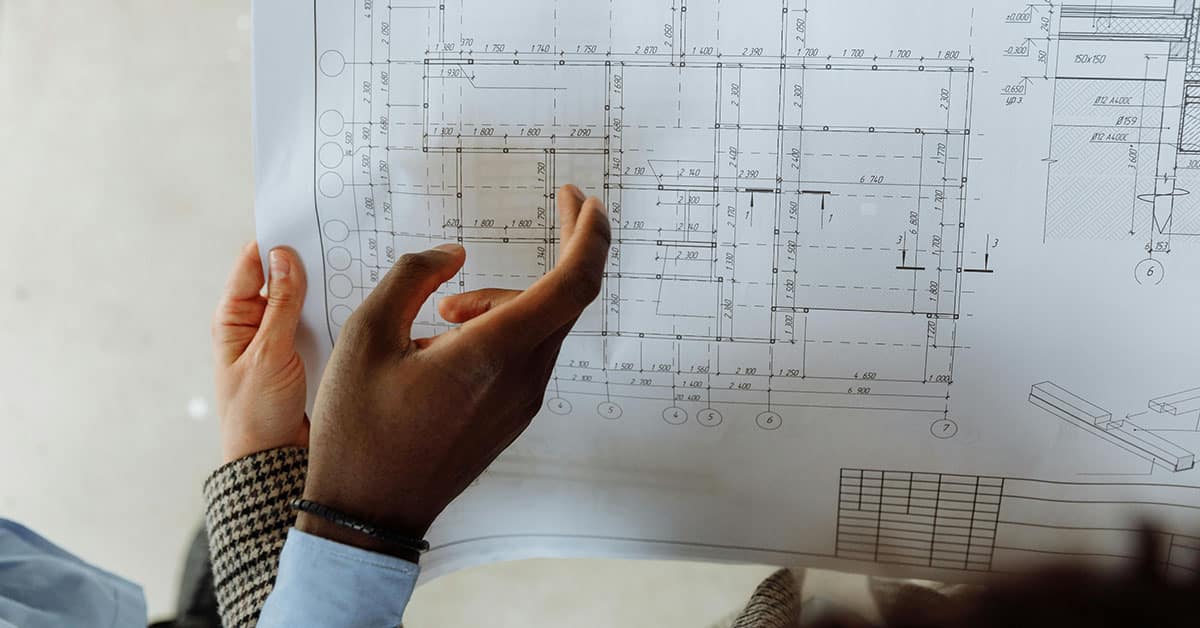Every construction project faces uncertainty — rising material costs, weather delays, supply chain issues, or unexpected site conditions. For Colorado business owners, these risks can quickly turn a well-planned build into a financial and operational headache. That’s why smart business owners invest in construction management services from day one.
In this guide, we’ll talk about how construction management protects your project from the unexpected. You’ll learn how pre-construction planning, cost control, scheduling, and quality management all work together to reduce risk and keep your build on track.
Overview
- Understanding Risk in Modern Construction Management Services
- Why Pre-Construction Planning Matters More Than Ever
- Common Project Risks in Colorado’s Construction Industry
- How to Control Cost, Schedule, and Scope (The “Triple Constraint”)
- The Role of Construction Management in Contract and Safety Oversight

Understanding Risk in Modern Construction Management Services
In today’s volatile construction industry, risks don’t just come from job sites; they come from economics, regulations, and even climate. The Construction Management Association of America (CMAA) identifies seven key responsibilities for effective construction management: cost management, time management, quality management, contract administration, safety management, professional practice, and communication.
Construction management services bring all seven together to control what’s known as the project management triangle — scope, time, and cost — without compromising quality. Through early forecasting, detailed schedule management, and proactive risk management, a construction manager helps owners anticipate problems before they impact the project.
In Colorado, where construction costs have risen 4–5% annually since 2021, these services can mean the difference between staying on budget and exceeding it by hundreds of thousands.
Why Pre-Construction Planning Matters More Than Ever
The most powerful way to prevent project risk is to stop it before it starts. That’s the goal of pre-construction planning — the phase where scope, budget, and feasibility meet strategy.
The pre-construction process includes:
- Feasibility and Design Coordination: Reviewing zoning, utilities, and permitting with local agencies.
- Cost Engineering: Using local supplier data to build accurate, inflation-adjusted estimates.
- Scheduling and Procurement: Sequencing materials and labor to minimize downtime and avoid price spikes.
- Risk Identification: Mapping out potential site, weather, and delivery challenges early.
The result is a clear, data-driven roadmap that protects your investment. According to McKinsey, nearly 80% of construction cost overruns stem from poor planning and scheduling. Strong pre-construction eliminates those blind spots long before ground is broken.

Common Project Risks in Colorado’s Construction Industry
From the Front Range to Pueblo, Colorado’s geography and permitting environment bring their own set of challenges. Common risks include:
- Permitting Delays: Some municipalities now take 8–12 weeks for plan review. Early submittals and follow-ups are key.
- Material Volatility: Concrete, electrical components, and HVAC units remain high-variance items.
- Labor Shortages: Colorado’s skilled trade gap has widened by 6% since 2022, requiring advanced resource efficiency and subcontractor coordination.
- Environmental Factors: Altitude and seasonal weather variations impact timelines and material curing processes.
Proactive construction management services turn these risks into manageable variables, using communication systems, contingency planning, and contract administration to maintain control.
How to Control Cost, Schedule, and Scope (The “Triple Constraint”)
Every successful build balances three elements: cost, schedule, and scope. Change one, and the others react — a concept known as the triple constraint in project management.
Effective construction management keeps those variables aligned by:
- Establishing Clear Objectives: Setting measurable performance and delivery goals.
- Tracking with Real-Time Data: Using cloud-based construction management software for transparent budget and progress tracking.
- Maintaining Flexibility: Adjusting procurement or sequencing to absorb unexpected market changes.
- Collaborating Early: Bringing engineers, architects, and contractors into one integrated team (often through design-build partnerships).
The result: predictable outcomes, fewer disputes, and improved quality assurance.

The Role of Construction Management in Contract and Safety Oversight
Risk doesn’t stop once construction starts. That’s where construction management services provide ongoing protection through contract administration and safety management.
A professional construction manager ensures:
- Every contractor and subcontractor adheres to scope and specifications.
- Site safety aligns with OSHA and local standards.
- All documentation, from field logs to change orders, is properly recorded for accountability.
This comprehensive oversight not only prevents accidents and rework but also protects the owner from legal disputes — a critical advantage in Colorado’s fast-growing commercial construction and infrastructure markets.
Plan Better with Specialized Pre-Construction Planning Services
The best way to manage risk is to start before you build. For over 30 years, Hammers Construction has provided full-service construction management services across Colorado, helping clients reduce uncertainty and build smarter.
Our team specializes in:
- Comprehensive pre-construction planning and feasibility studies
- Integrated design-build delivery to streamline coordination
- Advanced cost control and schedule management
- Local permitting, safety, and compliance expertise
Ready to start planning? Contact Hammers Construction today to learn how our pre-construction planning services can protect your next project from day one.
Frequently Asked Questions About Construction Management Services
What are construction management services?
They’re professional services that coordinate and oversee a project from concept through completion, managing budget, schedule, safety, and quality to meet the owner’s goals.
What’s the difference between a construction manager and a general contractor?
A construction manager acts as an owner’s representative, focusing on project management, cost control, and long-term strategy. A general contractor typically manages on-site labor and trade work.
How does pre-construction planning reduce risk?
It identifies challenges early — from zoning to supply chain constraints — allowing the project team to plan contingencies and lock in material pricing before volatility hits.
What’s included in a construction management contract?
Typical services include planning and scheduling, budgeting, contract administration, quality management, and safety oversight. Some agreements also include construction documentation and dispute resolution provisions.
How can construction management save money?
By optimizing resource efficiency and preventing costly change orders, construction management services can cut overall project costs by up to 10–15% compared to unmanaged builds.